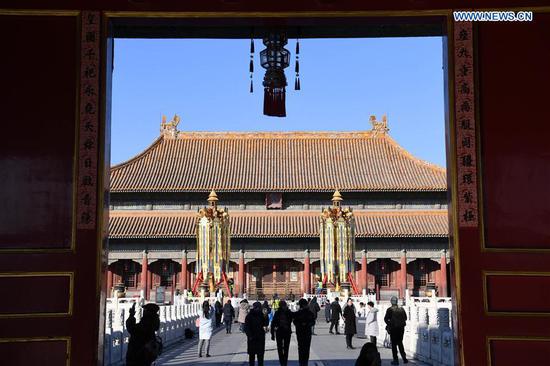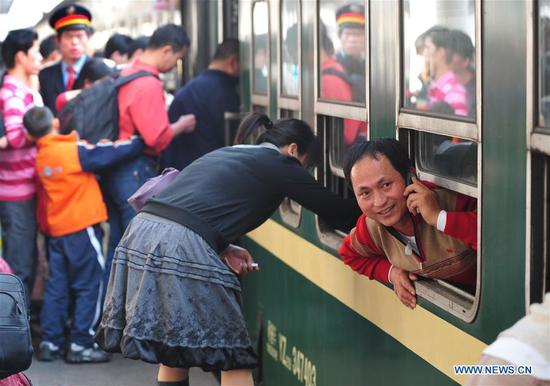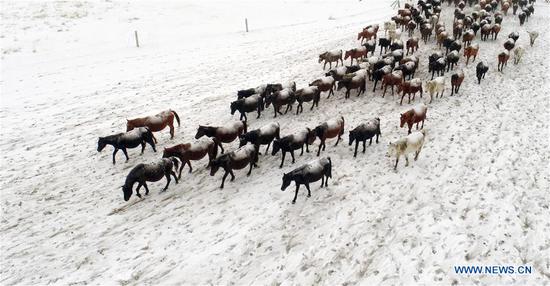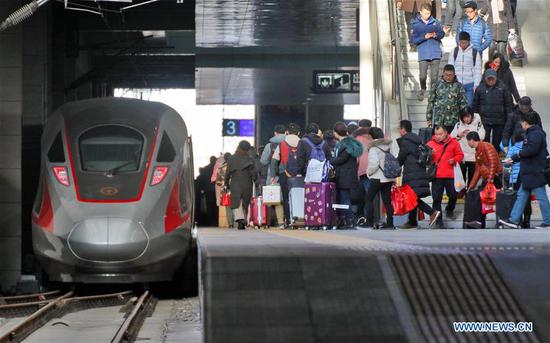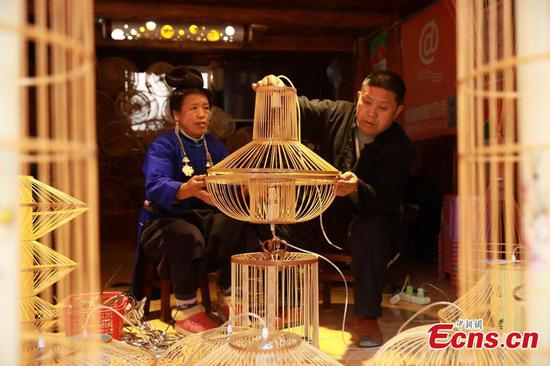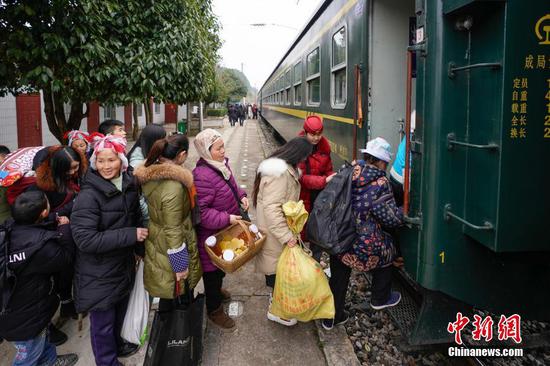Relationships are being strained by sycophancy, abuse and grandstanding.
Xiaowang won first prize in an essay contest? Then you simply must send a message thanking Mrs. Li for all her help -- just make sure you do it via the teacher-parent WeChat group, so everyone else knows, too.
Mrs. Li just posted a notice to the group, so you must reply with a group message, preferably with emojis, to thank her for her diligence and professionalism.
Sentiments such as these seem to be a dominant force in the use of teacher-parent WeChat groups.
The groups were originally designed as conduits of informative and harmonious dialogue between families and schools. Instead, the sheer convenience of the instant-messaging platform is becoming a cause of stress among teachers and parents alike.
The chat groups no longer play their original role, but have instead devolved into a free-for-all in which parents argue, show off and bootlick their way to curry favor with teachers, while the teachers feel obliged to answer questions and requests from parents 24 hours a day, seven days a week.
Zhang Shuai, father of a third-grader in Wuhan, Hubei province, said that although WeChat groups are a convenient way of learning about his child's schoolwork, he is frequently disturbed by unnecessary messages that can flood the groups.
"When a teacher sends an announcement in the chat group, the parents thank the teacher one by one, saying what a good job he or she has done. For me, this is a little bit over the top; after all it's the teacher's job to send out the announcements," he said.
"I feel emotionally drained by constantly having to heap praise on teachers via the messaging app and forced to respond with likes or emojis so as not to appear unappreciative."
He is also concerned that if he fails to show due respect, some teachers may treat his son badly, so he regularly resorts to cheap flattery.
Relationships within teacher-parent chat groups are subtle and complex. In the course of supposedly normal interaction, parents compete with each other by overtly signaling the high esteem in which they say they hold the teachers.
The result is unbridled sycophancy-scenarios in which parents fight tooth and nail to praise the teachers to the moon, but are actually showing off their or their child's achievements or trying to impress the teachers.
Teachers' Day, which falls on Sept 10 every year, provides plenty of classic examples of parental sycophancy. WeChat groups are awash with parents tagging teachers in seemingly endless streams of good wishes. Some parents even trot out their child's grandparents so all three generations can wish the teacher a happy holiday together, while others have their child record special video messages.
Conflict
Drama and conflict have also escalated in parent-teacher WeChat groups in recent months, sparking arguments about whether the groups do more harm than good to these relationships
According to one post that went viral on social media in October, a math teacher at a primary school in Jinggangshan, Jiangxi province, used a parent-teacher WeChat group to shame parents who forgot to check and sign their children's homework, asking: "Is it because you can't do second-grade math calculations? Or did you earn millions last night?"
Screenshots showed the message continuing with the words, "You can't even supervise your own child, who will be as pathetic as you are."
The incident quickly sparked anger toward the teacher and prompted the headmaster of the school, who confirmed that the incident occurred, to apologize to the parents involved.
In another screenshot that went viral, a man surnamed Li in Hangzhou, Zhejiang province, was told by a teacher that some parents had complained in the class WeChat group about him driving a sports car to school. The teacher said it would lead to unhealthy comparisons in class that were not conducive to friendships among students.
Many parents backed the teacher, and suggested Li use a different vehicle to take his son to school.
"If it's just dropping the kid at school, can't you just use another, regular car?" asked one parent. "You are not short of money, after all."
Li refused to back down. He said he had worked hard for his money and would give his son only the very best.
"If (seeing others) riding in a sports car hurts their feelings, your children are too sensitive," he wrote. "Besides, why should I buy another car just to serve your needs?"
However, he was quickly removed from the chat group and his final message-"What's wrong with you people?"-was bounced back to him without having been read.
Many teachers are less than happy about the chat groups, too, because they feel obliged to be at parents' beck and call 24 hours a day, especially as the app provides members with the ability to respond immediately.
Wang Yan, a primary school teacher in Changsha, Hunan province, said she spends a huge amount of time dealing with constant message notifications.
"Parents think they can reach me whenever they want, and they send messages on the groups whenever they feel like it," she said.
"Sometimes they get angry if I reply to their messages later, and call me 'incompetent' or 'irresponsible' in the group. I have begun to develop a phobia of mobile phones. I understand those teachers who kick parents out of groups. Being a teacher is not an easy job, and the groups just make our work harder."
Regulations
Local education authorities and schools have started rolling out regulations to control these WeChat groups
On Oct 15, the education bureau of Chengxi district in Xining, Qinghai province, sent out 10 rules-five do's and five don'ts-for online groups between schools and parents.
Among the five don'ts: homework and students' scores and rankings should not be shared in the groups; and teachers should refrain from praising students or criticizing them in the groups. Moreover, announcements should be sent during working hours and parents do not have to reply or like them.
On Oct 19, the education bureau in Hengshui, Hebei province, issued similar guidelines, forbidding teachers from assigning homework in the groups. It added that parents should not post sycophantic replies or advertisements or canvass votes if their child is in the running for a prize or title.
Also in October, Wenhui Middle School in Hangzhou, capital of Zhejiang province, announced that only one WeChat group may be established for each class, and the purpose of the group should be limited to posting important announcements.
Xiong Bingqi, deputy head of the 21st Century Education Research Institute in Beijing, said online channels cannot necessarily solve offline problems, such as the peer pressure endured by parents and the huge competition they face to provide the best education for their child.
China's unbalanced education system-with its strong emphasis on grades and rankings, and its famously tough national college entrance exam-has created an environment of intense competition and anxiety among parents and students, according to Xiong.
The growing popularity of new tools such as WeChat groups has reshaped the way parents and teachers interact, and exacerbated feelings of anxiety, which frequently manifest themselves in extreme behavior, he said.
"Teachers, for their part, are already overworked and hardly want to spend their free time being pestered by parents. Before long, everyone just feels exhausted, and no one has actually achieved anything," he said.
He added that the only way to bring calm back to these groups is to establish firm rules so they revert to the roles for which they were originally intended.
First person
I feel sorry about the pressure my son has to endure at school
Shi Qiang, 45, father of a high school student in Changsha, Hunan province.
When I was a primary school student in the 1980s before the spread of computers and the internet, I heard many stories about some parents' odd behavior.
They fawned over the teachers, gifts changed hands, and many teachers were given holiday presents by wealthy parents.
Their kids were often "rewarded" with prestigious positions as class monitors.
Fraught parent-teacher relationships are not a new phenomenon in China, but WeChat groups have added a new dimension to them.
The groups are usually organized by the teachers, who are also the group leaders. The basic function of the group is to use technology to improve communications between schools and families.
In reality, however, these groups are simply a means for teachers to tell parents "Do as you are told." They are not channels for parents to file complaints or challenge decisions.
Teachers maintain an authoritative front against the parents, just as they do with students.
Harmony in these groups only exists when the parents are as obedient as the kids. If not, conflicts occur and war can break out.
I was once in a group that only existed for a few hours. It was set up by my son's teacher when my kid entered ninth grade, the second-most important grade in the educational system after grade 12.
Twelfth-graders face the national college entrance exam, while ninth-graders have to compete for places at high schools.
Given China's large population and limited resources, not all middle school students are guaranteed a place at their preferred high school.
It is understandable that parents are just as anxious and nervous as the students in those grades. So, as soon as this ninth-grade WeChat group was established, concerned parents posted many questions.
Nobody took the young female teacher seriously when she stated: "I set up this group purely for school announcements. Do not ask irrelevant questions or distract attention."
She closed the group chat after issuing two warnings, leaving all of us parents dumbfounded.
In the classroom, she directed her anger and dissatisfaction toward the students, criticizing their parents as rude and impolite.
I am not saying the conflict between the parents and the teacher was entirely her fault-she was just one link in a long chain of problems in the education system.
I feel lucky that I was born before competition became so fierce in schools. I feel sorry about the pressure my son has to endure at school.
If no real action is taken, what sorts of difficulties and problems will my grandchildren's generation face when they go to school?











